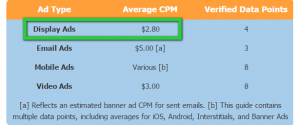Retailers of all sizes are gearing up for a holiday season that is likely to take place predominantly online. As more consumers turn to ecommerce to purchase gifts this year in lieu of crowded stores and long lines, many retailers will likely be diving into online selling for the first time or significantly expanding their ecommerce channels. While ecommerce offers a range of opportunities to retailers to reach more customers and serve them more conveniently, there are also a number of regulatory requirements that retailers must keep in mind to stay compliant and ensure they are serving customers in the best way possible.
As retailers gear up for an online-first holiday season, understanding nuanced tax obligations, like economic nexus and marketplace facilitator laws, could make-or-break sales. Not only do retailers risk being out of compliance and facing audits, but they also run the risk of charging an incorrect amount of tax, which could increase costs at checkout and turn customers away. Retailers need to ensure they have solutions in place to monitor changing sales tax obligations throughout the holiday season to stay compliant and protect the customer experience.
More online shopping = more remote sales tax obligations
As online sales climb this holiday season, many retailers could find themselves triggering new tax obligations that they are unfamiliar with. In June 2018, the Supreme Court decision in South Dakota v. Wayfair, Inc. granted states the ability to impose sales tax obligations on remote sellers even if the business has no physical presence in the state. Today, more than 40 states have enacted economic nexus laws and require remote sellers to register, collect, and remit sales tax if they meet an established sales revenue threshold in the state.
As we make our way into the holiday season, these remote sales tax laws are continuing to change. For example, on October 1, the state of Tennessee lowered the sales threshold for remote sellers from $ 500,000 to $ 100,000 in sales revenue. As tax rules and regulations around nexus requirements continue to shift, retailers should look closely at how they are currently managing their tax compliance requirements. If you’re a retailer who sells into 15 states and has remote sales tax requirements in 10 of those, trying to stay compliant using manual processes and spreadsheets can quickly become burdensome and nearly impossible. If managing tax manually, retailers not only have to worry about collecting and remitting the tax, but also ensuring that they are staying on top of changing tax rates and rules by jurisdiction so that they are charging the right amount of tax on every transaction.
Marketplace sales provide additional tax complexity
Similarly, marketplace facilitator laws require online marketplaces, like Amazon, Etsy, and more, to collect and pay sales tax on behalf of third-party sellers using their platforms. These laws take some of the tax onus off of individual retailers for sales made on the platforms but can trigger remote sales tax laws because the sales made through these platforms usually contribute to a seller’s economic nexus threshold. To date, more than 40 states and the District of Columbia have adopted their own versions of the marketplace facilitator law to capture revenue from marketplace sales. As online marketplaces continue to grow, it’s likely that more taxing authorities will make adjustments to marketplace facilitator laws that expand business responsibilities. For ecommerce businesses using marketplaces to sell this holiday season, you could still be responsible for sales tax in some states if you meet or exceed their revenue thresholds.
Cross-border compliance challenges and complexity
The tax obligations become even more complex and can quickly become out of control if you’re selling internationally this holiday season. Since customers can make purchases from anywhere via ecommerce, sellers of all sizes are more accessible to customers around the world. Although this increased access to the global market is great for sales, it opens businesses up to a number of tax complexities that they would otherwise not have to take into consideration, such as customs duties and tariffs. From a customer experience perspective, if a cross-border sale doesn’t include the cost of the duty or tariff at the time of purchase, sellers risk surprising customers with unexpected costs at the time of delivery and losing money on returned items.
While tax compliance is not at the forefront of many retailers’ minds as this online-first holiday season approaches, it’s a pain point that can be easily eliminated by automating tax compliance processes. Enlisting the help of tax technology can alleviate the burden of tracking every tax policy change and will allow you to focus on creating a seamless online shopping experience for your customers. Failing to comply with new online sales tax obligations brought on by an increase in ecommerce sales and changing legislation will have a long-lasting financial impact on retailers as governments come looking for the sales tax that is owed.
Digital & Social Articles on Business 2 Community
(12)
Report Post







